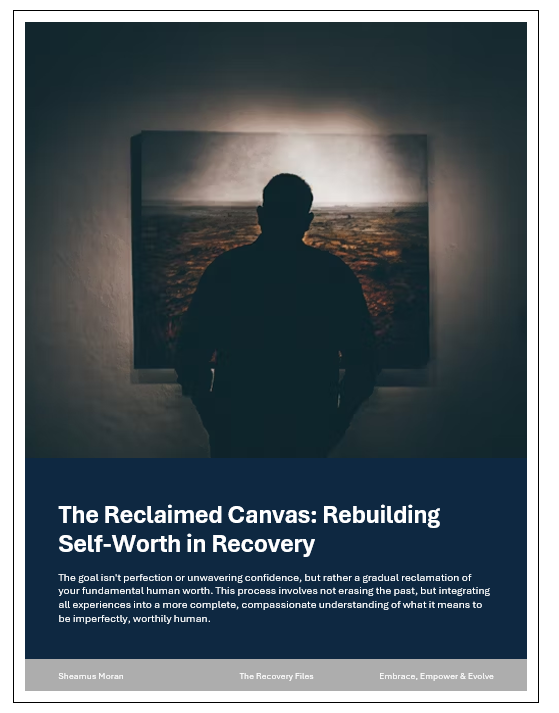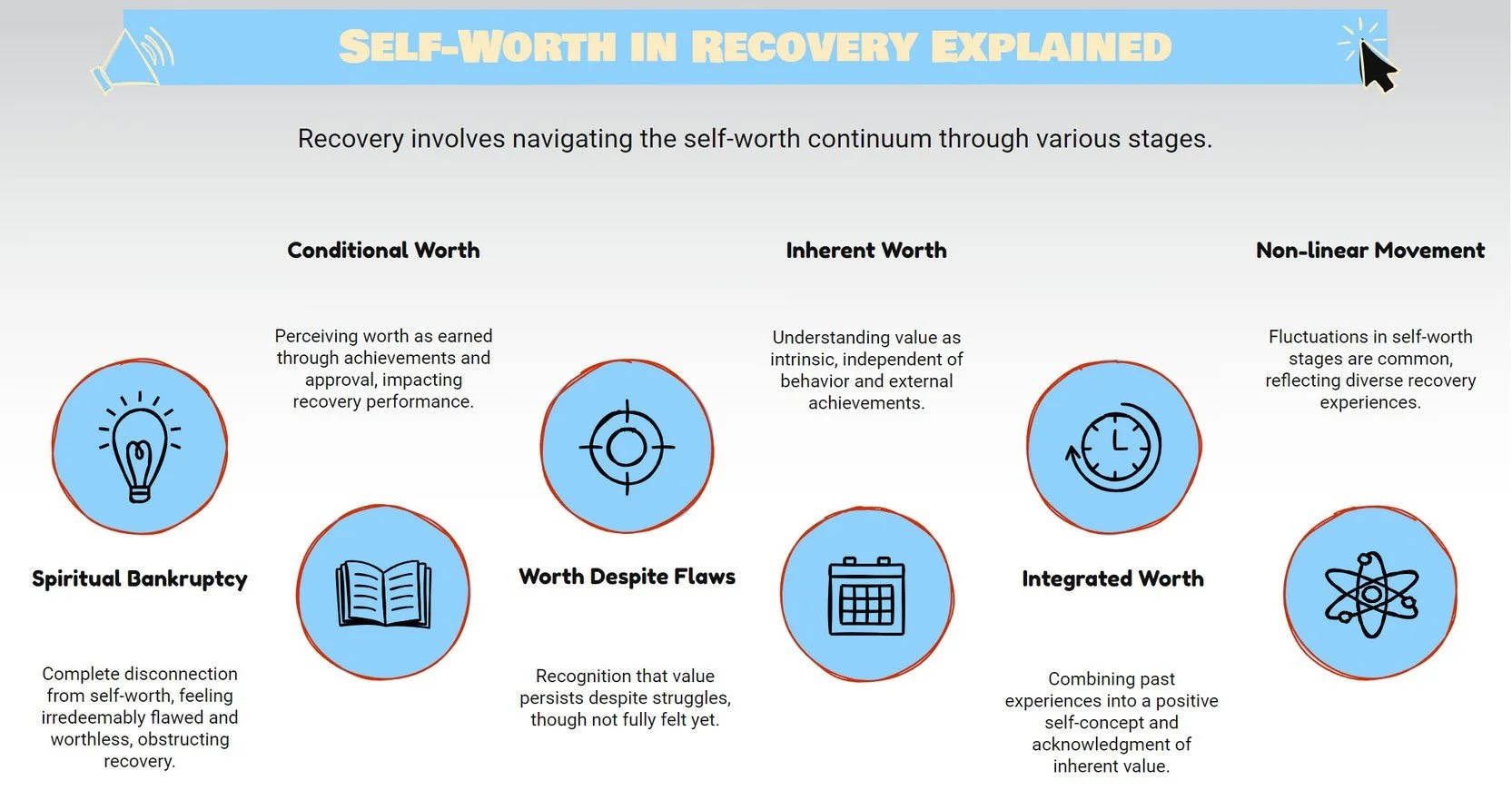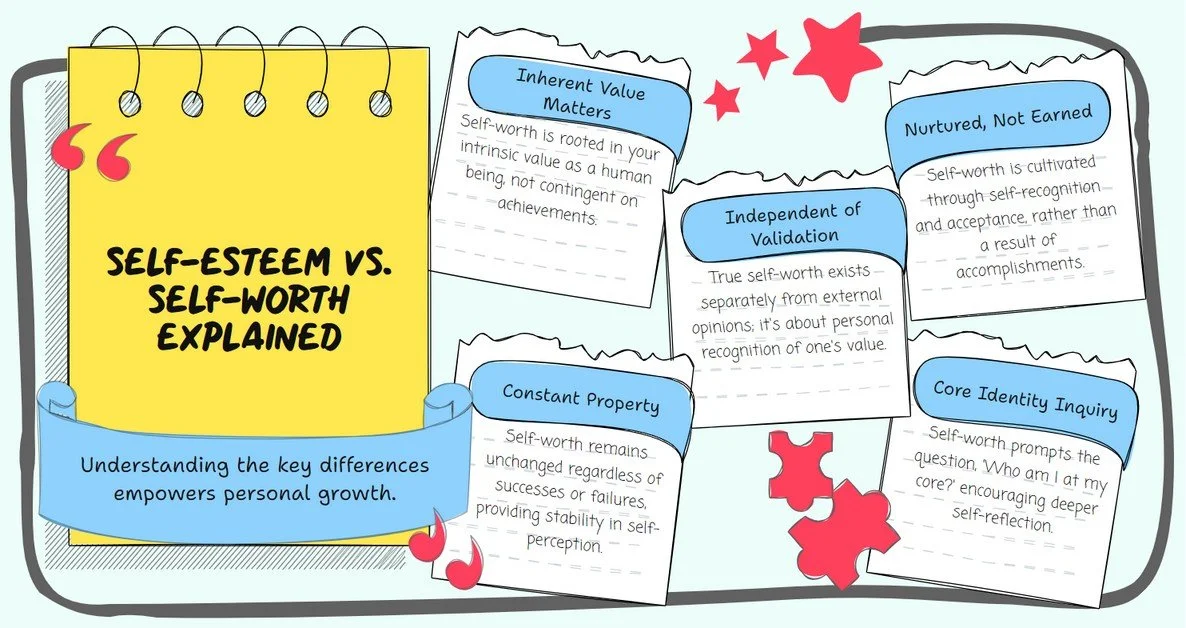
The Reclaimed Canvas: Rebuilding Self-Worth in Recovery
Many enter recovery experiencing what might be called "spiritual bankruptcy” not in a religious sense, but as a fundamental inability to see oneself as valuable or worthy. Years of living contrary to deeply held values create a self-concept defined primarily by failure, shame, and irredeemable damage. This compromised sense of self-worth manifests in numerous ways: constant apologizing, inability to set boundaries, avoidance of sharing in groups, sabotaging relationships, and perhaps most dangerously, vulnerability to relapse.
An important distinction in this healing journey is understanding the difference between self-esteem and self-worth. Self-esteem is evaluative and conditional, based on achievements and external validation. Self-worth, by contrast, is an inherent value that isn't earned or achieved—it exists independent of accomplishments or failures.
Self-Esteem:
Based on evaluation and comparison
Fluctuates according to performance and achievements
Depends partly on external validation and recognition
Can be enhanced through accomplishments and skill development
Asks "How well am I doing?"
Self-Worth:
Based on inherent value as a human being
Remains constant despite successes or failures
Exists independent of external opinions or validation
Is recognized and nurtured rather than earned or achieved
Asks "Who am I at my core?"



